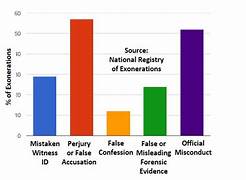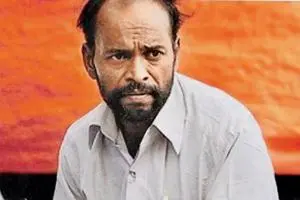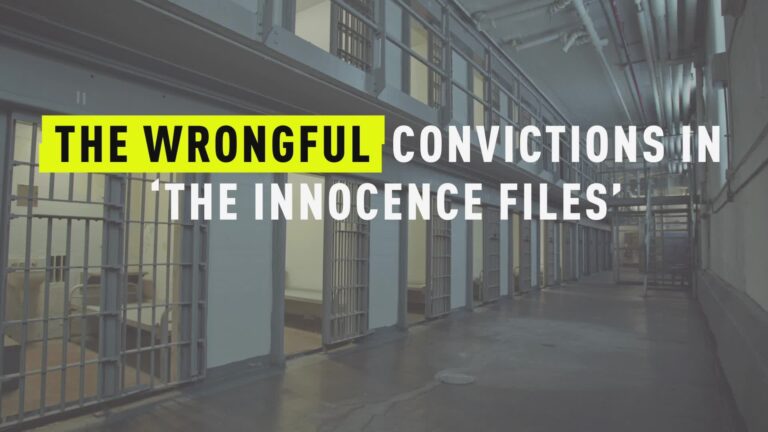Wrongful conviction is the miscarriage of justice, wherein, a person is convicted for an offence which they never committed in actuality. It is primarily caused because of improper working of law enforcement agencies, but can also be credited to several other factors such as a ‘punitive' culture in the state, misconduct on part of judiciary, poor defense and tampering of evidences, among others. It isn't out of place to mention about the grave consequences which the party, who is wrongfully convicted, has to face because of such conviction, both in terms of reputation and finance. To prevent such an unjustified conviction, the Constitution of India, and several other Statutes have laid down provisions for fair and transparent working of the judicial machinery, while also giving the wrongfully convicted person to have his locus standi and to prove his innocence.
Why do wrongful convictions occur?
The chief goal of the state and the courts is to see that no injustice is caused to people and adequate remedy is provided to victims. To achieve this goal in totality, the courts need to make sure that a fair trial is conducted. The process of investigation, examination of witnesses and production of the accused in the court needs to be done without any lapses to avoid wrongful convictions.
Wrongful convictions occur due to numerous reasons. Some of them might be:

- False or inaccurate testimony given by witnesses or police itself
- Lawyers lacking experience in handling cases.
- The defence lawyers lacking the resources to vigorously test the prosecution’s evidence during the trial.
- Fabrication of evidence.
- Manipulation of the testimony of eyewitnesses.
- Presentation of false forensic evidence.
- Negligence on the part of law enforcement officers and prosecutors.
The State's Duty of Reparation for Lost Years: A Moral and Legal Imperative
The concept of the state's duty of reparation for lost years has gained increasing attention in recent years, as societies grapple with the profound injustices of the past. Lost years refer to the years of an individual's life that have been adversely affected, curtailed, or destroyed by systemic injustice, discrimination, or wrongful imprisonment. This article explores the moral and legal imperative of the state to provide reparations for these lost years, shedding light on the significance of acknowledging and rectifying historical and contemporary wrongs.
Wrongful Imprisonment:
Another significant aspect of lost years pertains to wrongful imprisonment. Innocent individuals who have been unjustly incarcerated lose precious years of their lives behind bars. This loss cannot be measured solely in terms of time; it extends to emotional trauma, damaged relationships, and lost opportunities for personal and professional development.
The Moral Imperative:
Repairing lost years is not just a matter of legal obligation but also a moral imperative. It acknowledges the suffering inflicted upon individuals and communities and demonstrates a commitment to rectifying historical wrongs. Furthermore, it reflects a society's dedication to principles of justice, equality, and human dignity.
FIGHT FOR RIGHTS- THE GOPAL SHETE CASE
Gopal Ramdas Shete (Native: – Village: Dawsa, Taluka- Narkhed District Nagpur, Maharashtra).
https://www.instagram.com/reel/CwjhTL_hBhG/?igshid=MzRlODBiNWFlZA==
Interview with Gopal Shete-
https://www.khulke.com/roundtable?id=64eec63307571e7299250a25

Gopal Shete was leading a happy life in Mumbai. He had a sweet family consisting of his father, mother, wife and two daughters. he was working as an employ at five-star hotel in Andheri, Mumbai and earned enough for his family. Everything was set for Shete’s career. But the law and judicial system of the country affected the life of Gopal Shete.
On 19/07/2009, everything gets changed for Shete. On this day, Railway police found a mentally retarded women in unconscious condition at Ghatkopar railway station. On the basis of CCTV footages and victim’s statement, police started search for a person named, ‘Gopi’. The railway police couldn’t find ‘Gopi’ but found a person named ‘Gopal’. The railway police intentionally arrested ‘Gopal’ By mistaking his name as ‘Gopi’ (who was accused of rape charges). In order to save Gopi, a false case was made by thrashing him. The unclear CCTV footages were also presented before the court by the police. Bail petition was rejected, when father of “Gopal Shete” heard this, he died of shock and his mother becomes mentally ill. Soon the lower court ordered 7-year sentence on 31/05/2010. After going to jail, Gopal Shete, lost his love, that is, his wife got married for the second time, due to which both daughters became orphans, so both the daughter take refugee in the orphan ashram.
Appealed to “Bombay High Court” while in jail. The hon’ble High Court acquitted him respectfully on 10/6/2015. Gopal Shete, despite being innocent, remained in jail for 7 years. Justice met, but it was incomplete. His entire family and life had been disbanded. There’s no such law in our country, which could give back lost moments, respect, and social dignity to innocent prisoner.
After being respectfully acquitted from jail, social humiliation became very difficult to bear. The sorrow of disintegration of the family, the sorrow of the passing away of the father had become a part of his life. Similarly, we don't even know how many innocent prisoners are there in this country. Tolerating this tyranny (oppressive system of the law) has probably become the compulsion of every innocent.
With the thought, that this should not happen to any poor Indian in future, Gopal Shete has legally started a criminal writ petition WPST/3960/2015 dated 03/10/2015 for his rights in Hon'ble"
Bombay High Court, filed in Mumbai, in which mainly claimed 200 crores on the government, so that the possibility of such mistake can be reduced in future. After all success could not be achieved here also, because Hon'ble High Court, Mumbai" on 05/05/2017 dismissed the petition.
Once again criminal writ petition dated 14/09/2017 WPST/3701/2017 filed in Hon'ble Bombay High Court, which is still on going.
Currently he living in Nagpur, Maharashtra with his mother and two unmarried daughters. He is working as a computer operator in a company. He also has part time job in nearby hotel. "Gopal Shete" is still fighting legally with the judiciary and the system, in which rich survives but the poor’s life got ruined.
The rule of law is that 9 guilty should go free but 1 innocent should not be punished. Here we have an exception to this principle, "Gopal Shete". Who is still fighting for his rights in Hon'ble High Court, Mumbai. Gopal Shete expects justice from the Hon'ble High Court, Mumbai, if justice is not received, he has made up his mind to start a movement in public interest, as soon as he will stop this movement, when such a legal system will be made, in which no innocent will be punished.
Even if an innocent person is punished by mistake, after the truth comes to the fore, the public servant who cooperated in getting the punishment done will also be punished and at the same time, the government will have to take the responsibility of rehabilitating the innocent. So that after today no one can suffer like Gopal Shete.
Challenges and Controversies:
Implementing reparations for lost years is not without challenges and controversies. Questions arise about how to quantify the value of lost years, who should be eligible for reparations, and the source of funding. Critics argue that reparations can be a burden on taxpayers and may not directly benefit those who suffered the most but according to editor it is the right thing to do.
Editor’s note:
The horrors faced by a person thrown in jail for crimes they have not committed, cannot be understood unless one lives it. Our jails are overflowing with thousands of innocents under trials languishing for years. Once thrown inside jail, society draws no distinction between an accused or a convict. The author put forth the reason behind such injustice in India.
There is an old saying that a hundred murderers should be let out but not one innocent should suffer. Sadly, the reality of our criminal justice system is that, people are languishing in jail due to wrongful convictions and there is no adequate and appropriate remedy for them.
Even there is no legal system or framework which is appropriate to give post acquittal reparation and rehabilitation to victims like Gopal Shete that is why they have to suffer even after being innocent.
If we really want to implement the rule of law in it's true essence we will have to encounter all these flaws and will have to make appropriate legal framework to rehabilitate people like Gopal Shete not just financially but also socially.

